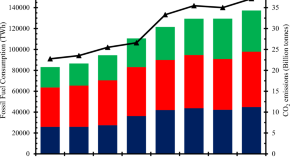Advancements in the application of metal oxide nanocatalysts for sustainable biodiesel production
Authors

Collection
Yie Hua Tan, PhD, Petroleum and Chemical Engineering, Faculty of Engineering, Universiti Teknologi Brunei, Bandar Seri Begawan, BE1410, Brunei Darussalam. She worked as a customer project engineer in X-FAB Sarawak for two years before pursuing her PhD studies in Chemical Engineering at the University of Malaysia, Sarawak (UNIMAS), Malaysia. Her research interests are biomass utilization, biofuel conversion technology, catalysis development, process optimization and modelling. Dr Tan has been awarded Chartered Chemical Engineer, CEng MIChemE from IChemE, UK in 2020.
Inn Shi Tan, Senior Lecturer, Curtin University, Malaysia. She accomplished her PhD in Chemical Engineering from Universiti Sains Malaysia (USM). Her main research interest is related to technology services regarding operations relating to product development (biomass and biofuel), which uses chemicals and enzymes for bioethanol and bio-monomer production. She has published a lot of research in high-impact journals such as Carbohydrate Polymer, Bioresource Technology, Energy Conversion and Management, Energy, Fuel, and Journal of Petroleum Science and Engineering.
Bridgid Lai Fui Chin, Associate Professor, Curtin University, Malaysia. She successfully obtained her PhD from Universiti Teknologi PETRONAS (UTP), Malaysia in the year 2015. She is recognized for her creative contributions within the field of green technology, particularly on the conversion of biomass and municipal solid wastes to renewable energy via thermochemical conversion which firmly focused on solving real-world problems particularly on mitigating climate change and developing clean energy.


